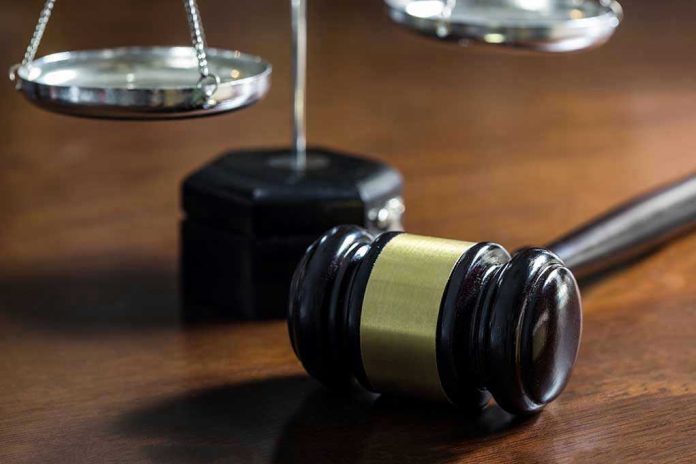
In a dramatic turn of events, rogue judges in New Jersey have ignited a firestorm by rejecting President Trump’s appointee Alina Habba as U.S. Attorney, prompting a swift and decisive response from the Department of Justice.
At a Glance
- Judges in New Jersey declined to reappoint Trump ally Alina Habba as U.S. Attorney.
- The DOJ, led by Pam Bondi, immediately removed Habba’s replacement, asserting executive authority.
- Senate confirmation for Habba remains pending amidst intense political debates.
- The incident highlights ongoing tensions between the executive and judicial branches.
The Battle for Justice in New Jersey
Alina Habba, former personal attorney to President Trump, was appointed as acting U.S. Attorney for New Jersey on March 24, 2025. Her appointment was part of a broader effort by Trump to install loyalists in key federal roles. However, her interim term ended abruptly when a panel of predominantly Democrat-appointed federal judges refused to extend her role, opting instead to appoint her first assistant, Desiree Leigh Grace, as the interim U.S. Attorney.
This maneuver by the judges is not just a matter of political tension; it’s a direct affront to the constitutionally mandated powers of the presidency. The DOJ, under the leadership of Pam Bondi and Todd Blanche, did not stand idly by. They swiftly removed Grace from her position, reasserting the president’s authority over such appointments. This decisive action underscores the administration’s commitment to maintaining its chosen leadership amidst what they view as judicial overreach.
Political Tensions and Accusations
The rejection of Habba has sparked a political outcry, with accusations flying from both sides. Senators Cory Booker and Andy Kim, vocal opponents of Habba’s confirmation, criticized the DOJ’s removal of Grace as a blatant attempt to intimidate judicial independence. The narrative from the left is predictable—painting the administration’s actions as an attack on the judiciary.
On the other hand, the DOJ and its supporters argue that the judges’ decision represents a politically motivated obstruction. By refusing to confirm a nominee who has already proven her capability through high-profile prosecutions, these judges are undermining the democratic process and the president’s constitutionally granted powers. This case is more than just a legal matter; it’s a battleground for the principles of democracy and separation of powers.
Implications for the Future
The stakes are high, not just for New Jersey but for the nation as a whole. This confrontation could set a dangerous precedent, where judicial panels feel emboldened to override executive appointments based on partisan lines. Such actions could erode confidence in the impartiality of our justice system, leading to a perilous imbalance of power between the branches of government.
For the residents of New Jersey, this political tug-of-war could mean uncertainty in federal legal proceedings and potential delays in ongoing investigations. The broader implication is a deeply polarized political environment where every legal appointment becomes a flashpoint for ideological battles.
Looking Ahead
The confirmation process for Alina Habba is still ongoing in the Senate, and it remains to be seen how this will unfold. The outcome will not only affect New Jersey but could also influence future appointments and the overall political climate in the United States. It is a critical moment that underscores the necessity of maintaining the integrity of our constitutional processes.
The Trump administration’s stance is clear—they will not allow partisan agendas to dictate the fate of their appointees. The events in New Jersey are a stark reminder of the challenges facing those who dare to disrupt the status quo in the pursuit of upholding conservative values and protecting the constitutional order.



